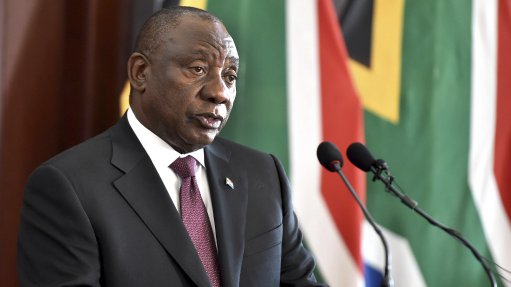
President Cyril Ramaphosa
President Cyril Ramaphosa said on Monday, while it is not yet known what impact the Omicron variant will have on hospital admissions, government has been preparing hospitals to admit more patients.
He said government is also investigating how it can quickly secure medication for treating Covid-19.
The Omicron variant that was brought to global attention by South African scientists nearly two weeks ago appears to be dominating new infections in most provinces.
Ramaphosa said scientists in the country and around the world are still hard at work to answer critical questions about the new Omicron variant, such as its transmissibility, its progression, whether it causes more severe disease and how effective vaccines will be against it.
“In the coming days and weeks we will know more about the Omicron variant. At the same time, we are keeping a close eye on the rates of infection and hospitalisation,” he said.
He announced that a meeting of the National Coronavirus Command Council (NCCC) will soon be convened to review the state of the coronavirus pandemic, explaining that this will enable government to take further measures needed to keep people safe and healthy.
“As the country heads into a fourth wave of Covid-19 infections, we are experiencing a rate of infections that we have not seen since the pandemic started. Over the last week, the number of daily infections has increased five-fold. Nearly a quarter of all Covid-19 tests now come back positive. Compare this to two weeks ago, when the proportion of positive tests was sitting at around 2%,” he said.
URGENCY OF VACCINATION
He explained that as the country enters the fourth wave of the Covid-19 pandemic, and as the country gears up for the festive season, the urgent priority is for more people to get vaccinated.
Scientific evidence shows that vaccination is the most effective means of preventing the spread of new infections, and that vaccines reduce severe illness, hospitalisation and death.
“While the surge in infections is of great concern, we should remember that we anticipated it. Disease modellers in our country have told us that we would likely experience a fourth wave around this time and that it was almost inevitable that new variants of the virus would emerge,” Ramaphosa said.
He added that vaccination is essential for the country’s economic recovery, because as more people are vaccinated more areas of economic activity will be opened up.
“We can do our work and socialise under less stringent restrictions, and our lives can return to some degree of normality. As individuals, we must carefully consider the implications of the risk to ourselves of being unvaccinated and the risk of spreading the infection to our children, parents, relatives, co-workers and those we do not even know,” he said.
The massive surge in infections means that, in addition to vaccination, people need to be far more diligent in reducing their contact with people outside their households.
“I call on all South Africans to go out and get vaccinated without delay. If necessary, take advantage of the Vooma Vaccination Weekends that make it easier to visit the facility closest to you,” said Ramaphosa.